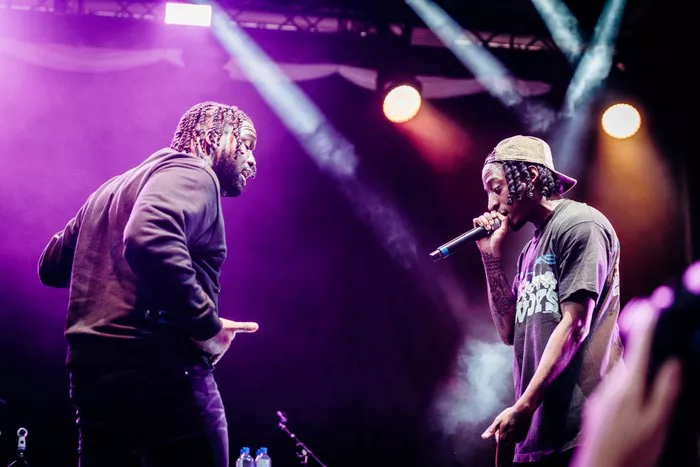In the ever-evolving landscape of music, genres continually blend and morph, giving rise to innovative and boundary-pushing styles. One such intriguing fusion is the emergence of psychedelic rap, a genre that marries the hypnotic sounds and introspective themes of psychedelic music with the rhythmic poetry and cultural commentary of rap. In this article, we delve into the depths of psychedelic rap, exploring its origins, defining characteristics, notable artists, and its impact on both music and culture.
Origins and Evolution
Psychedelic rap finds its roots in the rich tapestry of both hip-hop and psychedelic music. Hip-hop, born from the streets of the Bronx in the 1970s, has always been a platform for self-expression, social commentary, and experimentation. Meanwhile, psychedelic music emerged in the 1960s as a counter-cultural movement, characterized by its mind-expanding soundscapes, trippy visuals, and exploration of altered states of consciousness.
The marriage of these two seemingly disparate genres began to take shape in the late 1980s and early 1990s with artists like De La Soul and A Tribe Called Quest incorporating elements of psychedelia into their music. However, it wasn’t until the late 2000s and early 2010s that psychedelic rap truly began to come into its own, thanks in part to the rise of artists like Kid Cudi, whose introspective lyrics and experimental production blurred the lines between hip-hop and psychedelic rock.
Defining Characteristics
At its core, psychedelic rap is characterized by its fusion of psychedelic sounds, introspective lyrics, and innovative production techniques. Musically, psychedelic rap draws inspiration from the swirling guitars, ethereal synthesizers, and intricate rhythms of psychedelic rock, often incorporating elements of funk, soul, and jazz.
Lyrically, psychedelic rap delves into themes of self-discovery, introspection, and existentialism, exploring the complexities of the human experience and the quest for enlightenment. Artists often touch on topics such as mental health, spirituality, and the nature of reality, inviting listeners to embark on a journey of self-exploration and consciousness expansion.
Production-wise, psychedelic rap pushes the boundaries of traditional hip-hop, experimenting with unconventional song structures, abstract sampling techniques, and psychedelic effects such as reverb, delay, and phasing. This emphasis on sonic experimentation creates a mesmerizing auditory experience, transporting listeners to otherworldly realms and challenging their perceptions of what hip-hop can be.
Notable Artists
While psychedelic rap is still a relatively niche genre, it has garnered a dedicated following and produced a number of influential artists. One of the pioneers of the genre is Kid Cudi, whose debut album “Man on the Moon: The End of Day” is often cited as a seminal work in the psychedelic rap movement. With its dreamy production and introspective lyrics, the album introduced audiences to a new kind of hip-hop experience, one that was deeply personal and emotionally resonant.
Another artist at the forefront of the psychedelic rap scene is Travis Scott, whose genre-bending sound and surreal visuals have earned him critical acclaim and a massive fan base. His album “Astroworld” is a prime example of psychedelic rap in action, with its lush production, surreal imagery, and existential themes captivating listeners and critics alike.
Other notable artists in the psychedelic rap sphere include A$AP Rocky, whose experimental approach to production and introspective lyricism have earned him a reputation as one of the genre’s most innovative voices, and Flying Lotus, whose genre-defying soundscapes blend elements of hip-hop, jazz, and electronica into a mesmerizing sonic tapestry.
Impact and Future Directions
The rise of psychedelic rap has had a significant impact on both music and culture, pushing the boundaries of what is possible within the hip-hop genre and inspiring a new generation of artists to experiment with sound and consciousness. Its emphasis on introspection and self-discovery has resonated with audiences around the world, sparking important conversations about mental health, spirituality, and the human condition.
Looking to the future, psychedelic rap shows no signs of slowing down, with artists continuing to push the boundaries of the genre and explore new sonic territories. As technology advances and cultural tastes evolve, we can expect to see even more experimentation and innovation within the psychedelic rap movement, further cementing its place as a vital and dynamic force in contemporary music.
Conclusion
In conclusion, psychedelic rap represents a fascinating convergence of hip-hop and psychedelic music, blending the hypnotic sounds and introspective themes of the latter with the rhythmic poetry and cultural commentary of the former. With its emphasis on sonic experimentation, introspective lyricism, and existential themes, psychedelic rap offers listeners a unique and immersive musical experience, inviting them to explore the depths of their own consciousness and embark on a journey of self-discovery. As the genre continues to evolve and expand, its influence on both music and culture is sure to be felt for years to come.

